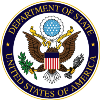State Department Welcomes ‘Digital Economy Officers’ to U.S. Embassies
By: Daniel Sepulveda, Deputy Assistant Secretary of State and U.S. Coordinator for International Communications and Information Policy in the State Department’s Bureau of Economic and Business Affairs (EB).
The Internet has changed our lives. We believe that its preservation as an open, global platform for innovation, commerce, and the exercise of human rights is critical to our success as a nation and the economic and social development of the world.
With that in mind, the State Department’s Economic Bureau, with the Office of International Communication and Information Policy (CIP) running point, is working to strengthen the Department’s ability to address digital economy issues. We are developing a new Digital Economy Officer Program as part of that effort and we are working with our colleagues from the Department of Commerce to team up and ensure that our interests and values in the digital age are advanced abroad.
The McKinsey Global Institute estimated in its Digital Globalization report released earlier this month that the direct impact of data flows raises world GDP by 3.0 percent annually, or $2.2 trillion in 2014. The global digital economy enables technological innovation which spurs concurrent innovation in businesses across sectors, networking, the transfer of knowledge, and access to international markets for businesses large and small alike, tech and non-tech — it is estimated that 75 percent of the benefits derived from information and communication technologies (ICTs) go to non-ICT businesses. And the digital economy is not just important to U.S. businesses and economic interests. Ensuring an open, interoperable, secure, and reliable Internet is critical to our national security and to the protection and exercise of international human rights as well.
Economic officers in our embassies around the world are today working hard to advance U.S. interests as the digital economy expands and to ensure the proliferation of technology contributes to global prosperity and our national security. However, those responsibilities are shifting in shape and growing in importance and impact almost as quickly as the underlying technologies themselves. And we are responding to that challenge.
To start off, we formerly referred to our officers managing these issues in our embassies and consulates as “ICT officers.” But this term doesn’t reflect how critical their work is to the economy overall. As a result, we are rebranding our ICT officers as “digital economy officers” to better reflect the scope and depth of the work that they need to do in markets abroad.
Other steps we’re taking aim at helping to increase the skills of our officers and the tools they have at their disposal. This will involve providing more intensive work with the private sector and NGOs passionate about digital economy issues, increased and improved training for our officers, improving our communication with Embassy Economic Sections on digital economy issues, and making sure our people have good informational resources easily available. We will also work to further raise the profile of digital economic diplomacy in our overseas missions. Our goals are to enhance the knowledge, capabilities, and resources available to officers handling digital economy issues, allowing them to be even stronger advocates for policies that promote American interests in this area. And our Digital Economy Officers will also be the on the ground face, voice, and advocates for our Global Connect Initiative.
We look forward to engaging further with all of our partners at home and abroad as we develop and implement these plans. In addition to working with firms engaged in the digital economy, we want to work with civil society, academia, the technical community, and others to ensure that our approach to dealing with digital economy issues advances the full range of the United States’ complex interests in this area.
Through these measures, our economic officers will become more effective representatives of U.S. interests in digital economy policy dialogues in multilateral fora, as well as better prepared to address bilateral concerns relating to a variety of digital economy issues, such as privacy, data flows, and e-commerce. The Digital Economy Officer Program underlines the high priority the State Department places on these issues in an exciting, rapidly changing foreign policy field, and we are excited to work with all of you in rising to the challenge.
